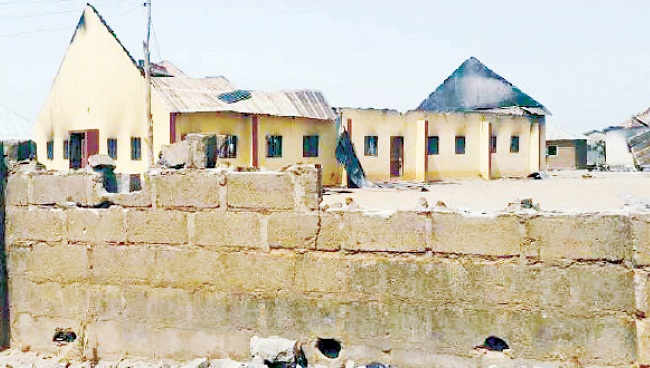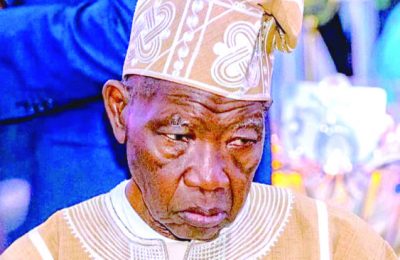Despite media attention and public outcry, the killing of villagers, who are mostly farmers, in Plateau communities has persisted. Security forces and the government seem to be helpless in the face of these incessant attacks. ISAAC SHOBAYO writes about the state of affairs among the victims and the toll the killings is taking on the economy and food security.
Attacks on villages and communities in Plateau State have been a recurring decimal over the years, especially in the northern part of the state, precisely in Riyom, Bassa, and Barakin-Ladi local government areas of the state.
Mangu Local Government Area, which is a purely agrarian council, hardly experienced a crisis until April last year when the marauders suddenly visited the council for their nefarious activities.

Since April last year, there has been no respite—hardly a week goes by without an attack in any of the villages. This development took a dangerous and frightening dimension shortly after Governor Caleb Muftwang was sworn into office as the executive governor of the state. The local government, along with the neighbouring Bokkos council, suddenly became a slaughterhouse. Such has been the fate of the residents of these local governments.
Farming, the major occupation of the people, has been adversely affected and has altogether stopped, as many have abandoned their farms for fear of being attacked by the rampaging killer herdsmen. As expected, this development has been accompanied by public outcries and condolence messages.
From June last year to December, hundreds of people, mostly children and women, were brutally murdered in various communities belonging to Mangu, Bokkos, and Barakin-Ladi local government areas. The most vicious onslaught against the people was the Christmas Eve attack on communities in Bokkos, Mangu and Barakin-Ladi, where over 300 people were killed in a midnight raid on about 30 villages and communities. The marauders equally destroyed farm lands and burnt several houses.
Still reeling from the Christmas Eve killings, the troubled Mangu was thrown into crisis again last week, during which 30 people were killed and burnt beyond recognition. Apart from the killings, several houses, including places of worship and the popular Friday maize market, were not spared by the attackers who swooped on the local government. There were gory tales about how families were killed in a barbaric manner.

Why the attacks?
Attacks on Plateau communities and villages are somewhat difficult to decipher or to unravel. To some people, it is just a case of farmers/herders clash. However, the frequent occurrence of the incidents, coupled with the way and manner in which the carnage has been performed, seem to have negated this assumption.
The National President Berom Youth Moulders, Solomon Dalyop, alleged that the attacks on the natives by gunmen suspected to be Fulani mercenaries was no longer a case of herders or farmers clashing.
Dalyop said it was a misconception to attribute the killings on the Plateau to farmers and herders clashes, adding that the crisis might have started as such, but it has now snowballed into intimidation and annihilation for land grabbing.
He said, “At the moment, nothing less than 150 villages and communities belonging to the natives are under the Fulani occupation. So, it is no longer an issue of cows straying into people’s farms or being killed by the farmers. It is a desire for ethnic cleansing because you cannot grab somebody’s land without attacking him.
“There is also a desire for political penetration. This cannot be achieved until the territorial land is acquired. We learned that they want to start producing councilors and House of Assembly members in Plateau State.”
The former Senate Minority Leader, Senator Simon Mwadkwon, reacted this way: “We have people coming to us at night to kill us, destroy our farms, and even occupy our lands. This is far from farmers-herders clashing. Farmers do not farm at night, nor do cattle graze at night. The cattle are mobile, and the farm is stationary.”
The Fulani, through its apex association, the Miyetti Allah Cattle Breeders Association (MACBAN) Plateau State chapter, equally admitted that it was no longer a farmers-herders clash any more.
Its state chairman, Mallam Nuru Abdullah, absolved the Fulani from the attacks, saying they had never been the aggressors, rather it was the natives who had been attacking the Fulanis.
Though Governor Muftwang has inherited this security challenge from his predecessors, the belief in certain quarters is that the latest attacks on Mangu, where the governor hails from, are a deliberate ploy to cause distraction from governance and frustrate the governor’s efforts toward the development of the state.
A political scientist, Ibrahim Garba, claims that the same strategy was employed when Senator Jonah Jang was governor of the state, adding that throughout Jang’s eight years in power, the Northern zone, where he hails from, never experienced peace.
“To me, this is a baptism of fire. Those before him suffered the same fate. It is a calculation of attempts by enemies from both within and outside the state to cripple his administration. How do you explain this? Before he was elected, Mangu was one of the peaceful local governments in Plateau. But as soon as he won the election, the attackers relocated to his council area and the neighbouring Bokkos. To some extent, this is political and a quest by the enemies of Plateau State to cripple his administration.”
Economic implications
Checks by the Nigerian Tribune revealed that the economy of the state, specifically in the local governments affected by the crisis, is at a low ebb. Many traders are skeptical of venturing into the troubled councils for business transactions.
An official of the Mangu Friday maize market, who spoke on condition of anonymity, said the frequent crisis in the local government has drastically slowed down business activities, adding that the number of traders who often thronged the market with lorries every Friday to buy maize has dropped drastically.
It was equally gathered that the volume of Irish potato cultivation had equally decreased. Farmers are afraid of going to the farms. They fear being attacked by rampaging gunmen. There have been several instances where farmers were gunned down on their farms or attacked on their way there.
Bokkos local government is a major contributor to the West African Irish potato supply. Traders from the neighboring countries like Ghana, Niger Republic, and Benin Republic were always present in their numbers every Tuesday in Jos to buy the potatoes in large quantities. But Nigerian Tribune findings revealed that business like this is no longer the case. While farmers are afraid of going to the farm, the traders are equally afraid to come and buy for fear of being attacked.
A community leader in the Bokkos Local Government Area, Gideon Alfred, alleged that the attackers, in line with their expansionist agenda, have taken over mining activities in some of the communities they have sacked. He said the killer herders, along with their accomplices, are taking over the mining sites in villages where people have fled for their lives.
Muftwang’s interventions
In the face of the crises and the spate of killings in Governor Muftwang’s local government of Mangu in recent times, the governor said he remains undaunted in his efforts to arrest the situation.
Worried by the frequency of the attacks and the need for accurate information whenever there is an attack, the state government established a security and information centre to provide residents with access to reports on developments in various locations.
The governor also unveiled a 600-Neighborhood Watch of Operation Rainbow to complement the operations of the security agencies in the state and maintain peace in the hinterlands of the state.
To reshape the security architecture of the state and to ensure prompt intervention in emergency situations, the governor recently procured 34 Hilux vehicles through the collaborative efforts of the 17 Local Government Transition Committee Chairmen as part of efforts to ensure a seamless deployment of security personnel across the local government areas.
There have been a series of peace and reconciliation meetings held with various stakeholders, such as religious leaders, the leadership of the development associations, professional associations, and politicians across the political divide, to deliberate on how to curb the incessant attack in the state.
Apart from the state government’s efforts to arrest the situation, the Chief of Army Staff (COAS), General Taoreed Lagbaja, recently inaugurated “Operation Hakorin Damisa IV,” a special operation to tackle insecurity in the state. Hakorin Damisa, which means “tiger’s teeth,” was launched in Mangu on July 22, 2023.
The attacks have also given rise to a presidential order and a special military operation. Checks by the Nigerian Tribune revealed that despite these efforts by the state government and the military to arrest the situation, the killings persisted and seemed to have defied all odds.
The recent security breach in Mangu, despite the security arrangements in place, was a big surprise to quite a lot of people. The circumstances surrounding the attack were barbaric and nearly turned into an ethno-religious crisis if not for the prompt intervention of the state government, security agencies, and some notable stakeholders both within and outside the local government area. At a point, there was a religious attack; people were killed and burned, and properties were arbitrarily destroyed.
Commissions of Inquiry, way out?
There is a general belief that the marauders are being emboldened due to a lack of prosecution and punishment for perpetrators. Nigerian Tribune findings showed that nobody or group has been arrested and punished for crimes committed so far in Plateau State. There were instances where people were arrested and transferred to Abuja, only to be allegedly left off the hook later on and thereafter returned to the state.
The Southern and Middle Belt Forum, led by Chief Ayo Adebanjo, reiterated this during a recent condolence visit to Governor Muftwang over the killings in the state. Adebanjo declared that those behind the insecurity in the state have been emboldened because there have been no arrests or punishment.
Also, the Emir of Wase, Alhaji Muhammadu Sambo Haruna, during a visit of the Muslim Ummah to the governor, said that the cycle of killings in the state was due to a lack of political will on the part of the previous leaders to implement reports of the Commissions of Inquiry set up to proffer solutions to the senseless killings and punish perpetrators accordingly for their wrongdoings.
The emir said these unfortunate incidents might continue if no one is held accountable. Haruna charged those in authority to take full charge of affairs under them to arrest the spate of killings.
There are a lot of reports from the Commissions of Inquiry set up by successive governments. There was Justice Aribiton Fiberisima of 1994, Justice Nikki Tobi of 2001, and Justice Jumai Sankey of 2001, all set up by the state government. Justice Suleiman Galadima Commission, 2001; Justice Felicia Dusu, set up by the state government in 2002; Justice Constance Momoh Judicial Commission of Inquiry, and Prince Bola Ajibola Commission of Inquiry on the 2008 Jos crisis.
There were also high-powered committees set up either by the state or the Federal Government to probe the series of crises in the state in the past 25 years. In many instances, reports are submitted and the white papers are consigned to the shelf, despite the huge investments committed to the commissions. Findings revealed that none of the successive governments had the political will to implement the white papers.
A retired top government official who served as a secretary to one of the commissions disclosed that some of those indicted are still the same set of people behind some of the crises rocking the state today, adding that if they had been dealt with according to the recommendations contained in the white papers, it would have served as a deterrent to those following in their footsteps at the moment.
A cross-section of eminent citizens of the state who spoke with the Nigerian Tribune tasked Governor Muftwang’s administration to study and revisit the reports and white papers of the past and set up a Commission of Inquiry to probe the killings in parts of the state recently, with a willingness to implement the report. They claimed that this will go a long way toward addressing the incessant killings in the state.







